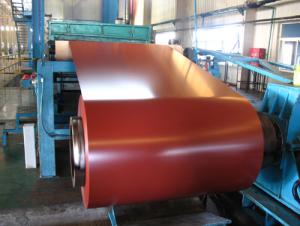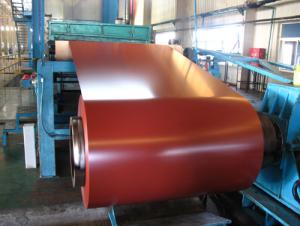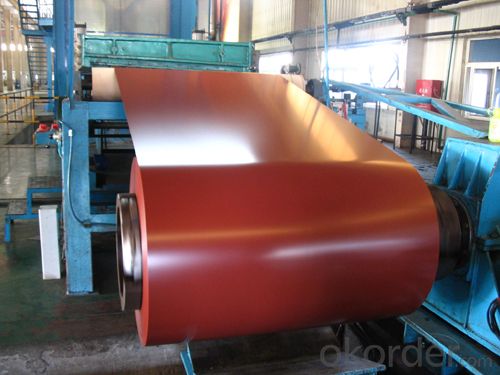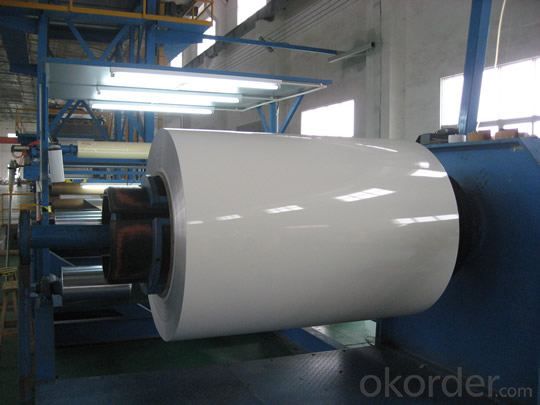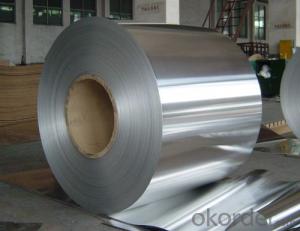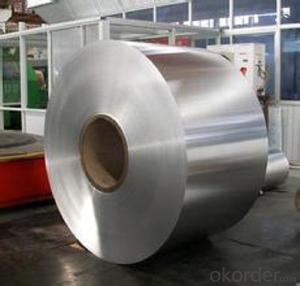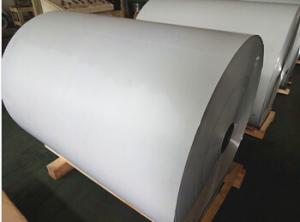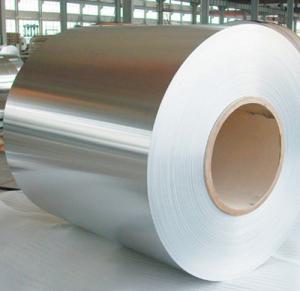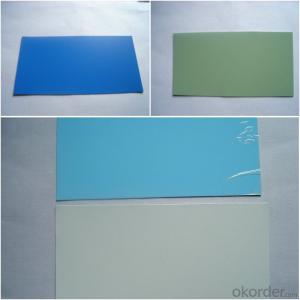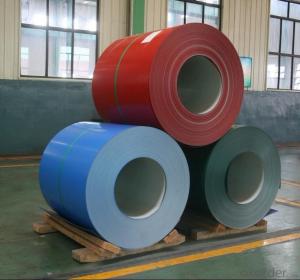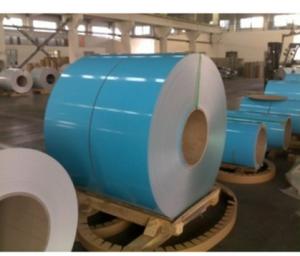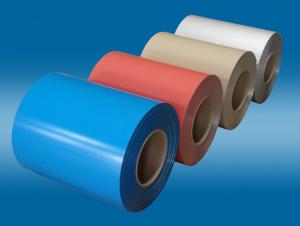Reflective Aluminum Coil - Color Coated Aluminium Coil with Pearl Aluminum Color
- Loading Port:
- China Main Port
- Payment Terms:
- TT or LC
- Min Order Qty:
- -
- Supply Capability:
- -
OKorder Service Pledge
OKorder Financial Service
You Might Also Like
1.Structure of Product Description
Color Coated Aluminium Coil is widly used in roofing, wall and decoration. There are two kinds of painting. One is PE coated and the other is PVDF coated. Usually in the open air, we recommend PVDF Coated. It can last 15-20 years. Now painting brand can be China domestic brand, PPGI and Becker. The price is different. It depends the final customers requirement and usage environment.
2. Main features of the product
a.Good quality --Our color coated aluminium coils are exported to Europe. We have passed European SGS inspection.
b.Professional after-sale service--CNBM have rich experience in export process.
c.Fast delivery time--Usually our delivery time can be controlled within 30 days.
3.Image:
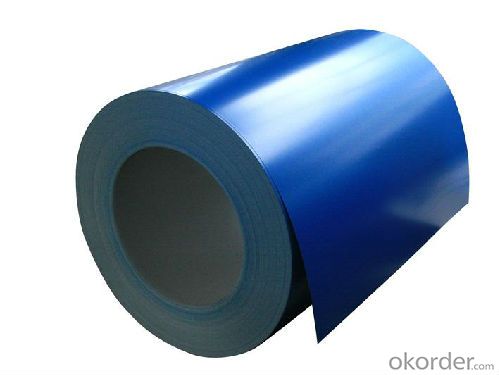
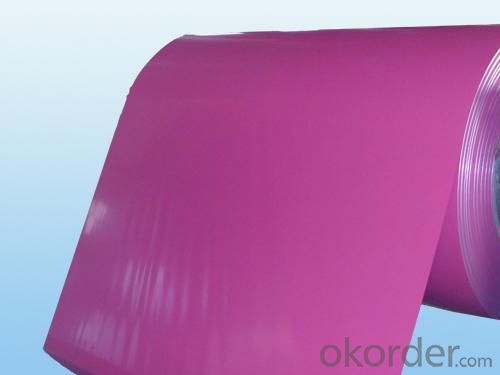
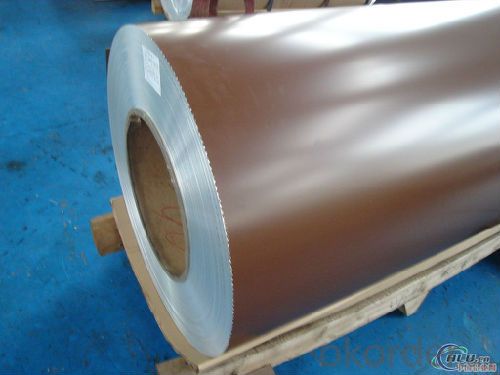
4. Product Specification:
| Alloy | Painting | Coating Thickness | Color | Width | Coil ID | Coil Weight |
| AA3003 | PE,PVDF | 22-25MICRON | RAL | Above 1000MM | 505mm | 2 tons |
5.FAQ:
What is the quality standard?
---Usually our standard is GB3880-2006
What is the largest width?
---It is 2300mm
What is the MOQ?
---Usually we can accept 5 tons.
- Q: This question asks for criteria or methods to determine if an aluminum coil is of high quality.
- <p>To identify a high-quality aluminum coil, consider the following factors: purity level, which should be 99.5% or higher for most applications; surface finish, ensuring it's smooth and free from defects; thickness consistency, which should be uniform across the entire coil; mechanical properties, such as tensile strength and elongation, that meet industry standards; and adherence to specific alloy grades for particular applications. Additionally, check for certifications from recognized standards organizations and consider the supplier's reputation for quality and consistency.</p>
- Q: Can aluminum coils be used in the production of heat exchanger fins?
- Indeed, aluminum coils have the capability to be employed in the manufacturing process of heat exchanger fins. The utilization of aluminum as a material for heat exchanger fins is quite prevalent owing to its exceptional thermal conductivity, lightweight composition, and resistance against corrosion. These attributes render it a perfect substance for the efficient transfer of heat, ensuring both sturdiness and long-lasting performance. The ease with which aluminum coils can be shaped into intricate fin designs further enhances the surface area available for heat exchange. Moreover, the abundant availability and cost-effectiveness of aluminum make it the favored selection for the production of heat exchanger fins across a multitude of industries, including HVAC, automotive, and refrigeration.
- Q: Are aluminum coils resistant to abrasion?
- Yes, aluminum coils are generally resistant to abrasion. Aluminum is known for its durability and ability to withstand wear and tear. It has a high strength-to-weight ratio and excellent corrosion resistance properties, making it suitable for various applications where abrasion resistance is required. Additionally, aluminum coils are often coated or treated with protective finishes, further enhancing their resistance to abrasion. However, the specific level of resistance may vary depending on the specific alloy and the surface treatment applied to the coils.
- Q: Are aluminum coils suitable for pharmaceutical packaging?
- Pharmaceutical packaging finds aluminum coils to be a fitting option. The pharmaceutical industry extensively utilizes aluminum due to its remarkable qualities of offering a barrier, durability, and flexibility. It effectively safeguards against moisture, light, oxygen, and other external elements that may compromise the quality and stability of pharmaceutical products. Aluminum coils allow for effortless molding into diverse shapes and sizes, making them ideal for packaging various pharmaceutical products like tablets, capsules, and ampoules. The packaging can be tailored to specific requirements, ensuring proper sealing and protection during storage and transportation. Moreover, aluminum is both non-toxic and chemically inert, guaranteeing that it does not react with the contents of the package. This is crucial for maintaining the medication's integrity and safety. Additionally, aluminum coils possess excellent heat conductivity, rendering them suitable for the commonly employed heat-sealing processes in pharmaceutical packaging. Apart from their functional properties, aluminum coils offer a sustainable and environmentally friendly choice for pharmaceutical packaging. They are easily recyclable, reducing the environmental impact and promoting sustainability within the healthcare industry. In summary, the barrier properties, flexibility, customization options, non-reactivity, heat conductivity, and sustainability of aluminum coils make them highly appropriate for pharmaceutical packaging.
- Q: Can aluminum coils be painted or coated after installation?
- Yes, aluminum coils can be painted or coated after installation.
- Q: Do you have an aluminum coil first? Is there an aluminum plate?
- Yes, all aluminium sheets are made of aluminium rolls after slitting. The general process of aluminum plate production is: aluminium ingot - aluminum water - casting roll - aluminum roll ---- aluminum plate [Ji'nan excellent aluminum industry]. Welcome to visit.
- Q: What are the different alloys used for aluminum coils?
- Aluminum coils utilize several different alloys, each possessing unique properties and applications. Some commonly employed alloys encompass: 1. 1100 Alloy: A pure aluminum alloy that boasts exceptional corrosion resistance and high thermal conductivity. It finds frequent usage in scenarios necessitating elevated thermal or electrical conductivity, such as heat exchangers or electrical conductors. 2. 3003 Alloy: A versatile aluminum alloy offering commendable resistance against atmospheric corrosion and moderate strength. It is commonly employed in situations requiring moderate strength and formability, like packaging, roofing, or vehicle parts. 3. 5052 Alloy: Among the strongest non-heat-treatable aluminum alloys, this alloy exhibits top-notch corrosion resistance and favorable formability. It frequently finds application in marine environments, automotive components, and household appliances. 4. 6061 Alloy: A heat-treatable aluminum alloy renowned for its exceptional strength and corrosion resistance. It is often utilized in structural capacities, such as aircraft components, marine hardware, or bicycle frames. 5. 7075 Alloy: A high-strength aluminum alloy recognized for its outstanding fatigue strength. It is commonly employed in aerospace and military scenarios, as well as in high-stress structural elements. These examples represent merely a fraction of the diverse array of alloys employed for aluminum coils. The selection of a specific alloy depends on the desired properties and intended application of the coil.
- Q: What are the weight ranges of aluminum coils?
- The size and thickness of aluminum coils determine their weight ranges, which can vary greatly. Aluminum coils can weigh anywhere from a few hundred pounds to several thousand pounds. Coils used for household purposes or in manufacturing small parts usually weigh around 100-500 pounds. Coils commonly used in construction or automotive industries range from 500-2,000 pounds. On the other hand, larger coils utilized in heavy-duty applications like aerospace or marine industries can exceed 2,000 pounds and sometimes even surpass 10,000 pounds. It is important to emphasize that these weight ranges are approximate and can differ based on the specific requirements of a particular project or application.
- Q: What is the minimum width of aluminum coils?
- The minimum width of aluminum coils can vary depending on the specific requirements and manufacturing capabilities, but it is typically around 0.5 inches or 12.7 millimeters.
- Q: Are aluminum coils suitable for pharmaceutical vial caps?
- Yes, aluminum coils are suitable for pharmaceutical vial caps. Aluminum is a commonly used material in the pharmaceutical industry due to its excellent barrier properties, corrosion resistance, and ability to be easily sterilized. It provides a tight seal, ensuring the integrity and safety of the vial contents. Additionally, aluminum coils can be easily formed into the desired shape and size for vial caps, making them a reliable choice for pharmaceutical packaging.
Send your message to us
Reflective Aluminum Coil - Color Coated Aluminium Coil with Pearl Aluminum Color
- Loading Port:
- China Main Port
- Payment Terms:
- TT or LC
- Min Order Qty:
- -
- Supply Capability:
- -
OKorder Service Pledge
OKorder Financial Service
Similar products
Hot products
Hot Searches
Related keywords
